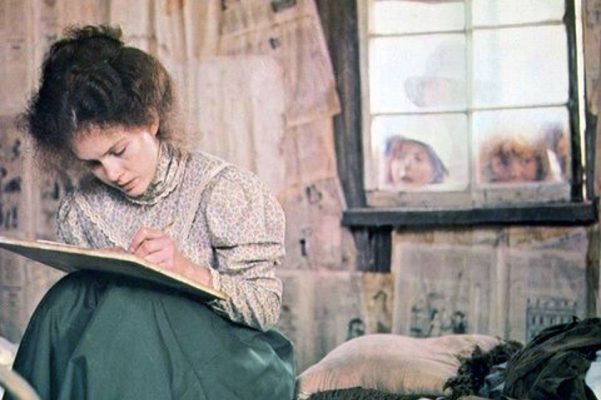Gillian Armstrong/ Australia/ 1979/ 110 minutes
On Blu-ray from Mon 27 May 2019
Sybylla Melvyn (Judy Davis) lives on a farm in the Australian outback at the turn of the century. She’s been born cursed: “ugly but clever.” It’s a hard-scrabble life but the girl has an upright piano and dreamy delusions of grandeur.
She is sent to her maternal grandmother where the contrast couldn’t be starker. There are lace antimacassars and silver teapots but the spirited Sybylla who considers herself, “useless, plain and godless,” is a source of grief and irritation until local jackaroo Frank Hawdon (Robert Grubb) comes sniffing around. Sybylla could do worse than marrying him (her mother married beneath her and is now a drudge). But spirited Sybylla won’t hear of it. She wants to marry for love. She wants a career. “What in?” asks granny incredulously. “Literature, music, art… the opera,” answers Sybylla, “I haven’t made up my mind yet.”
If the girl is not to be seduced by the nebbish Hawdon she is equally unimpressed with the Laura Ashley-style accoutrements of her privileged life. Then attractive if diffident landowner Harry Beecham (Sam Neill) comes a-courting and he is a different kettle of fish. Does Sybylla really have to choose between independence and loneliness just because she’s a woman? Maybe a stint teaching dirty farmer’s children in muddy Possum Gully will concentrate Sybylla’s mind and give her material for her book.
The film is based on the novel by Stella Franklin (using the pseudonym Miles Franklin and first published by Blackwood’s of Edinburgh in 1901 when the author was still in her teens). The Stella prize for women’s literature was established in Australia in 2013.
The excellent cinematography’s by Donald McAlpine. Australia certainly never looked so verdant or post-Impressionist. If the period setting with its fragrant aunts, parasols straw hats and lapdogs sound a bit Merchant-Ivory it’s not. The Oz landscape, the very non-British attitude to class divisions, Judy Davis’s strong and soulful performance and the film’s unapologetic feminist credentials make the movie timeless and incredibly watchable.
